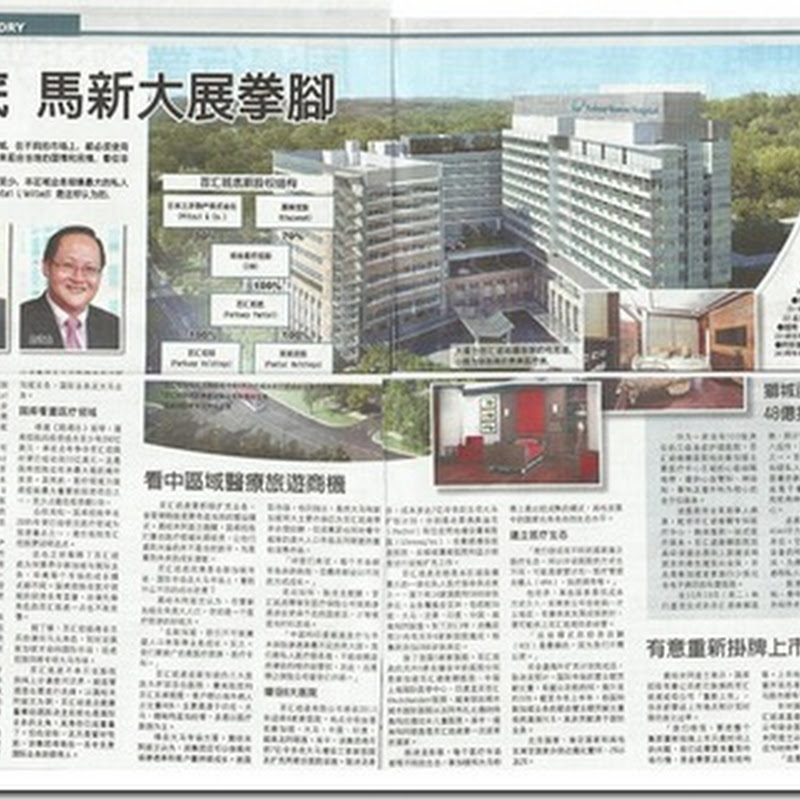If Malakoff Corp Bhd is relisted, it is unlikely to be the same dividend-yielding animal that the company was prior to its privatisation by MMC Corp Bhd in 2007.
The bulk of its cash flow has been tied up during its privatisation, leaving it without much room to declare healthy dividends.
MMC had to gear up to increase its interest in Malakoff during the privatisation from about 22% to 51%. Also, since privatisation Malakoff has not had an expansion in its generating capacity. This means that there is no new cash flow and all existing cash would have been committed”.
Apart from MMC, the other shareholders of Malakoff are the Employees Provident Fund (EPF) and Kumpulan Wang Persaraan (KWAP).
Although Malakoff has submitted a bid for an expansion of another 1,000MW at its Tanjung Bin power plant in Johor, it is still early to tell whether Malakoff would be awarded the capacity expansion.
The other bidder for the spare capacity is Jimah Energy Ventures Sdn Bhd, which has proposed a similar size capacity expansion at its plant in Negeri Sembilan. The Energy Commission would only announce the expansion award in September 2011, and the new capacity would only be commissioned by 2016.
If Malakoff gets the additional 1,000MW, then it would provide some upside. But the competition for additional power is keen as apart from Jimah there are other parties looking at it including Tenaga (Nasional Bhd).
Currently, Malakoff is generating 5,020MW which is about 25% of electric power generation capacity in the peninsular. The company was valued at RM9.3 billion when it was delisted on July 2007.
The relisting of Malakoff would depend on what kind of Malakoff is MMC trying to put up. Malakoff used to be a favoured stock among investors because of its generous dividend payout due to its power generating business which is cash generating.
The relisted Malakoff should have a profound business growth strategy, whether through the proposed capacity expansion or by securing overseas contracts.
It was also not clear yet whether MMC, which owns 51% of Malakoff’s shares, would include the overseas operations of the company, which has a significant footprint in the Middle East and North Africa region, as portrayed through its projects in Saudi Arabia, Algeria, Kuwait and Jordan.
Malakoff operates in power generation and water desalination in these countries, to diversify its geographical exposure and since the market for power generation in Malaysia is quite limited.
MMC should consider relisting the whole operation of Malakoff for a better growth prospect.
Another factor which is deemed unfavorable for an independent power producer (IPP) is that the current power purchase agreement (PPA) between IPPs and the government is due to expire in 2017, so it is poised to be renegotiated soon. The former PPA was viewed as lopsided in favour of the IPPs, hence observers are bearish for IPPs to gain significant benefits from the new PPA.
The government would not want to repeat its mistake when negotiating the former PPA, hence the new agreement would likely not be very much in favour of the IPPs.
However, there is a void on Bursa Malaysia for a well-capitalised and pure independent power producer, after the privatisation of Malakoff and Powertek Bhd by Tanjong plc. The latter has also been privatised by Usaha Tegas Sdn Bhd, the private vehicle of tycoon T Ananda Krishnan.
Investors who want to invest in a pure independent power producer would be able to do that once Malakoff is relisted. This is because since the privatisation of Powertek Bhd by Tanjong plc, and subsequently the company itself was taken private by Ananda Krishnan, there is no major IPP stock listed on Bursa.
However many questioned the main motive of the eventual relisting plan by MMC of the leading power producer company. The investing community generally are in the dark about Malakoff after its privatisation. However, any relisting exercise of the IPP by MMC would not be so soon.






















































No comments:
Post a Comment